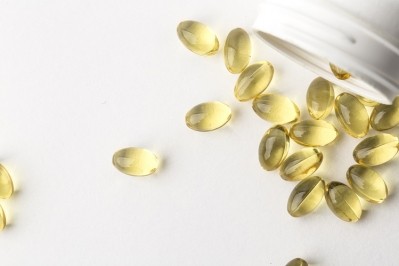Recent large-scale omega-3s trials are harbingers of better days for omega-3s research, experts say

The full results of the two long awaited trials, one called VITAL and the other REDUCE-IT, were reported on Saturday at a recent meeting put on by the American Heart Association.
Both trials used drug materials
The VITAL trial, which included more than 25,000 participants and stretched over about 5 years, looked at omega-3 fish oil in combination with vitamin D. The trial, which used a 1 gram dose of concentrated fish oil delivering 850 mg of omega-3s, looked at endpoints of reducing major cardiovascular disease.
The REDUCE-IT trial was conducted by pharmaceutical company Amarin on its drug Vascepa, which is a highly purified, ethyl ester form of EPA. This trial, which used a 4 gram dose of the drug looked at a combination of cardiovascular health end points, and, because it was a drug trial, looked at people with CVD, diabetes or other risk factors.
The VITAL trial did not achieve the trial’s primary outcome of significantly reducing major cardiovascular disease (CVD) events. However, omega-3s were found to reduce total and fatal myocardial infarction risk by 28% and 50%, respectively. A 17% reduction in risk was recorded for total coronary heart disease, versus placebo. In the Amarin trial, the intervention was found to reduce the risk of the primary composite end-point of cardiovascular death, nonfatal myocardial infarction, nonfatal stroke, coronary revascularization, or unstable angina by 25%, compared to placebo.
Mixed message
The mainstream media reportage on the trials was mixed. The Washington Post took a positive spin, whereas The New York Times issued a negative report that focused on the null result on the primary endpoint in the VITAL trial.
Experts familiar with omega-3s research were enthused about the outcomes of the trials, whatever the mainstream media reporters might have had to say. Even though both trials were conducted on drug forms of omega-3s (the VITAL trial used a one-pill does of BASF/Pronova's Omacor/Lovaza), the results are likely to influence consumers’ perception of the efficacy of omega-3s.
Good news for category
“I think there is no question these are good news for the category,” said Dr. William Harris, PhD, of the Sanford School of Medicine at the University of South Dakota. Harris is also the founder of OmegaQuant, which offers blood testing to assess the Omega 3 Index, of which Harris was the co developer.
“What forces are arrayed to make these look like not good news, I don’t know,” Harris told NutraIngredients-USA.
“If we start with REDUCE-IT, the outcome here was really not so surprising. Every one of their secondary endpoints were reduced by Vascepa. I thought that was a very impressive outcome, especially when it came on top of the statins [which some participants were using],” he said.
Harris said a key facet of this trial was the high dose. What is still to be determined is whether the results were attributable to the EPA-only nature of drug. Results of another trial that is currently ongoing, which is using a 4 gram dose of a high EPA and DHA product will shed some light on that issue, he said.
Statistical power adds confidence
Duffy MacKay, ND, senior vice president of scientific and regulatory affairs at the Council for Responsible Nutrition, said the statistical power of the VITAL trial means that the success on that study’s secondary endpoints should count as a significant win for omega-3s. In some cases, especially in smaller trials, observers may be highly critical of the practice of manipulating the data to find some secondary outcome that can be reported as positive when a primary goal is not reached.
Referred to by some researchers as ’p-hacking,’ the practice has led to the reporting of results in nutritional studies, neuroscience, social research and other fields which cannot be reproduced. MacKay emphasized that is very unlikely to be the case here.
“The subplots are very interesting here,” MacKay said. “With more than 25,000 participants, that’s a whole lot of data. If we look at the individual components of cardiovascular disease such as heart attack or stroke, that is some strong data backing those outcomes.”
And MacKay emphasized that these secondary endpoints were designed in from the start of the trial, and were not added in during data analysis to try to make the results look juicier. In addition, the large data set is designed to be used for further studies, which could yield more good news for omega-3s in the areas of diabetes, cognitive function, depression and auto immune diseases.
Appropriateness of regulatory paradigm
MacKay said the results of the two trials reinforced in his mind the appropriateness of the regulatory paradigm for omega-3s in which supplement and pharmaceutical applications coexist. The VITAL trial, while conducted with a drug product, used a dosage of EPA and DHA that is realistically achievable by an average supplement user, whereas Amarin’s trial showed what can be accomplished with a drug-level dosage and concentration of EPA when applied to sick individuals.
“In the VITAL trial, the data supported omega-3s for filling in nutrient gaps for someone who doesn’t consume much fish. I look at this study as a real nutrition level intervention, where they saw the most benefit for the people who did not eat fish regularly,” MacKay said.
“On the other end, you take a population with known heart disease, you have a product with known mechanisms of action and you really flood the system with it,” he said.


















